Each month, we provide up to £2,000 in grant money to early career researchers in quantitative disciplines.
Our aim is to support and assist PhD students and postdocs conducting research, particularly with costs that may be difficult to get funding for elsewhere, for example, travel for those who are caring for children, or expenses for volunteer work related to research.
Learn more about our grant programme, including how you can apply and the work we support.
Read on to hear from our latest winners, their research and how our grants will aid their work.
July grant winners
Robin Muegge (University of Glasgow)
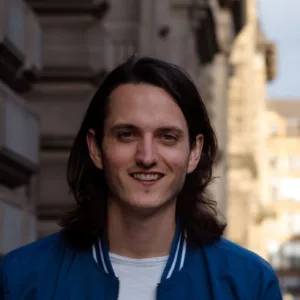
“I am a Statistics PhD student in a Maclaurin Scholarship position at the University of Glasgow. My research focuses on the spatio-temporal modelling of areal data, with applications in epidemiology and public health.
“The grant provided by G-Research will contribute to the funding of a research placement of three months at the University of Wollongong in Australia, where Iwill work on combining spatial statistical models with machine learning techniques to allow locally adaptive smoothing in big areal data.”
Clementine Domine (University College London)
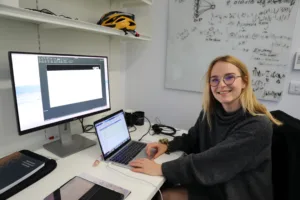
“My research seeks to develop mathematical toolkits suitable for analyzing and describing learning mechanisms in artificial and biological networks. In particular, I focus on the theory of deep learning, a class of artificial neural network models that take inspiration from the brain.
“The G-Research grant will allow me to attend and deliver our workshop, titled UniReps: Unifying Representations in Neural Models (https://unireps.org), at the NeurIPS Conference 2023.
Katarzyna Rudzka (University College London)
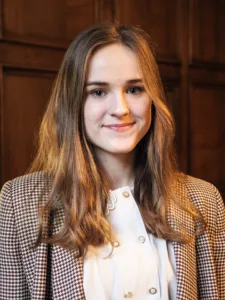
“I am a PhD student in cognitive neuroscience at University College London. My research focuses on the cognitive and neural mechanisms of spatial navigation in humans, using immersive VR to test spatial behaviour and optically pumped magnetoencephalography to look at the neural substrates of navigation.
“Building on my group’s work showing that altered navigation is affected early in Alzheimer’s disease (AD), the G-Research grant will fund my travel to Medellín, Colombia, to test navigation in people with familial AD due to a genetic mutation, to test the hypothesis that impaired navigation is the first clinical manifestation of AD. Proof of hypothesis would have important implications for the early detection and treatment of AD.”
Barnum Swannell (University of Oxford)
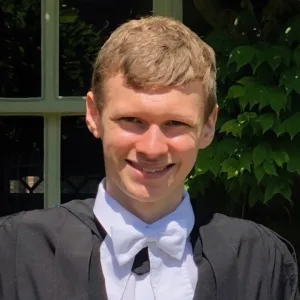
“I am an applied mathematician studying biological problems at the University of Oxford.
“My PhD research focuses on developing mathematical models of advanced microfluidic systems with applications in the pharmaceutical industry. The insights gained from our modelling work have a real-world impact on the pharmaceutical drug development process, from optimising the design and operation of such systems to improving understanding of drug mechanisms of action, which ultimately serves to benefit patients.
“This grant from G-Research will enable me to present my latest work on a novel microfluidic system at the prestigious International Congress on Industrial and Applied Mathematics.”
Milo Grillo (Humboldt University)

“I am a PhD Candidate in mathematics, working on developing mean field games with common noise using rough path theory.
“Outside of the context of my PhD, I wrote a short paper which discusses a method to find prediction intervals for forecasting problems by training on asymmetric loss functions. The grant from G-Research will help me fund my travels to a conference to present my results to the world.”
Isaac Reid (University of Cambridge)
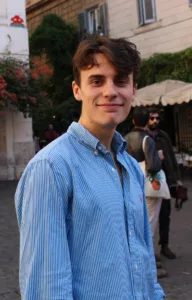
“I am interested in problems at the interface of machine learning, statistical physics and applied mathematics, where theoretical results have proved elusive, applications are high-impact, or both.
“G-Research’s grant helped me present my latest work on scalable Transformers at the International Conference on Machine Learning (ICML), where I delivered a talk on our new algorithm and its theoretical guarantees.”
Stefano Blumberg (University College London)
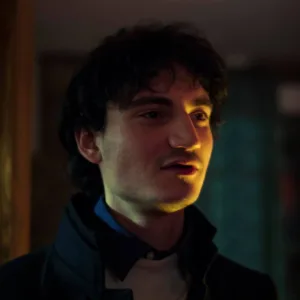
“I am currently pursuing a PhD in Computer Science at University College London.
“My research focuses on developing innovative deep learning techniques to enhance the quality of 3D MR images. This includes a novel low-memory system for 3D images that allows users to balance memory usage with computational time, the first multi-task learning approach for harmonizing data across different scanning platforms and sites, and an automated methodology for producing state-of-the-art results in a subsampling-reconstruction MRI challenge.
“The grant from G-Research enabled me to attend ICML 2023, where i co-presented the paper, ‘A Game-Theoretic Framework for Managing Risk in Multi-Agent Systems’.”
Congratulations to our grant winners.
